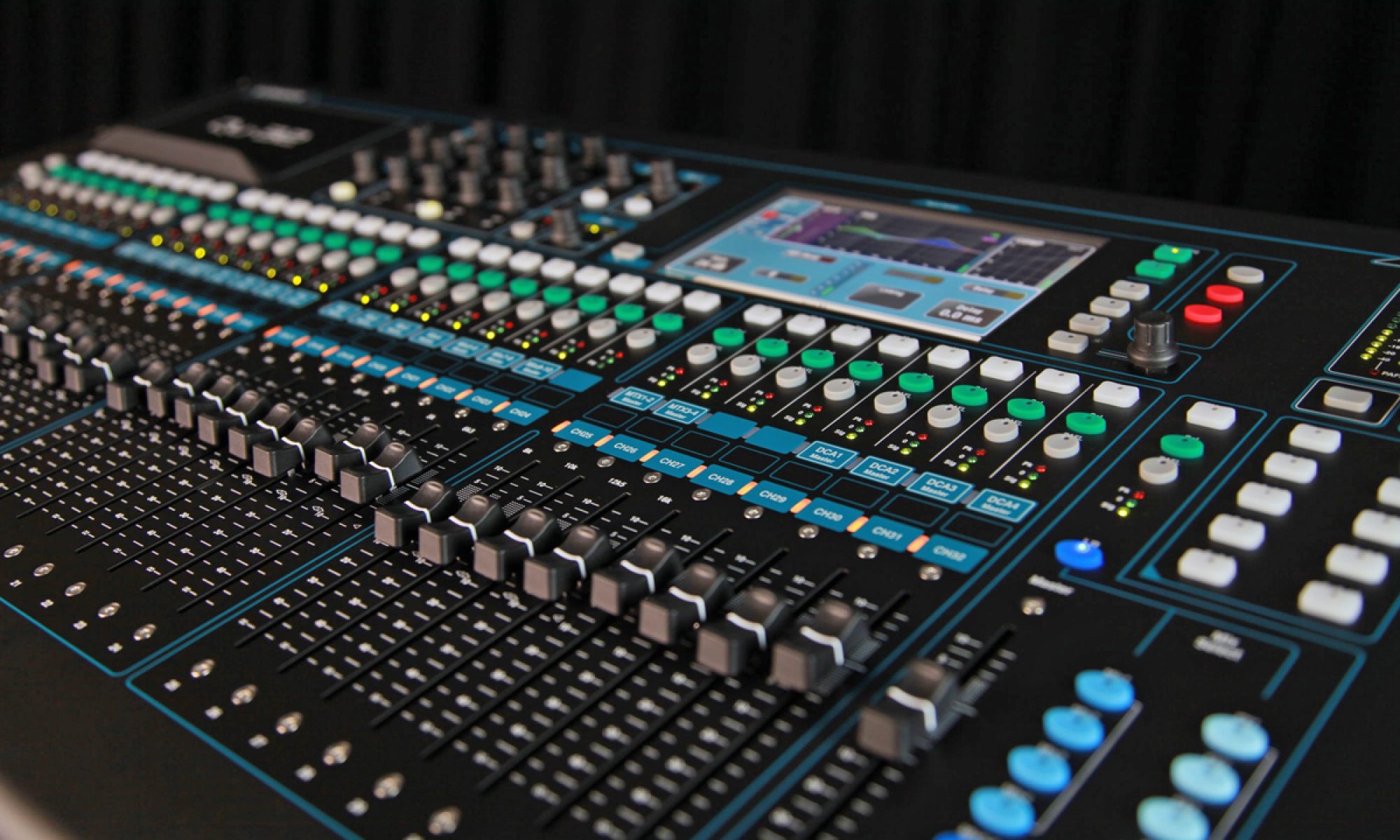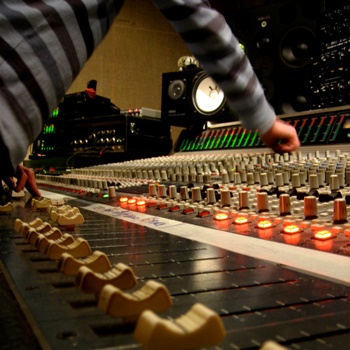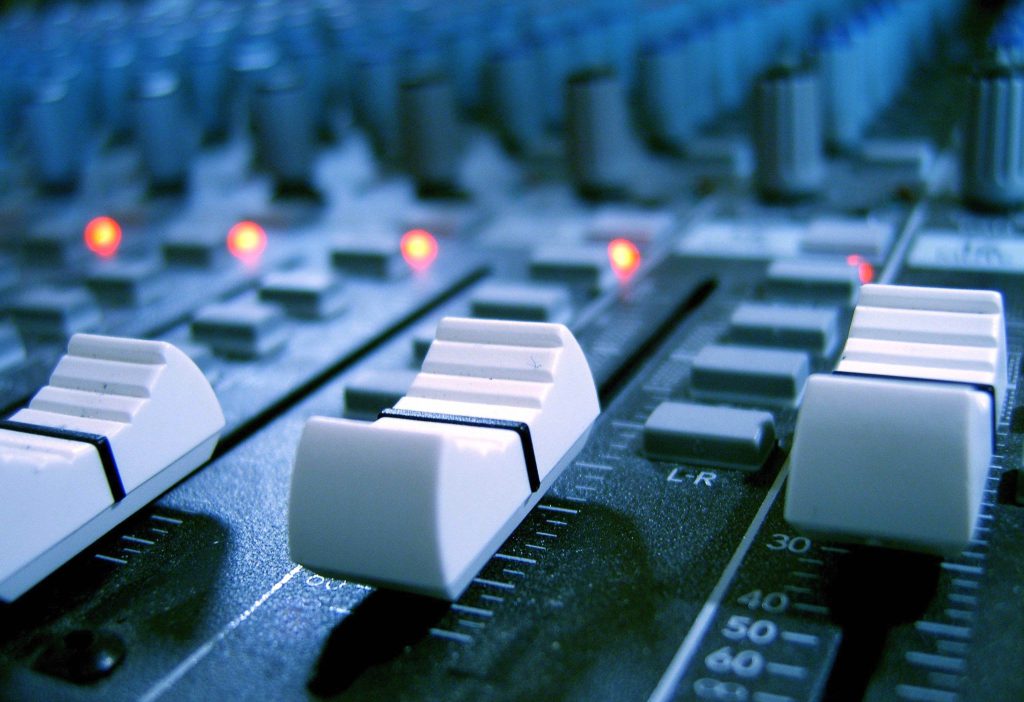Welcome to the last week in this Mix Essentials Series I’ve titled as “The Quick Mix” but have started referring to it as guerrilla mixing. I think that second title fits a bit better but oh well. These last two weeks we’ve gone through the very basic steps to take just to get up and running in a hurry (or at least the steps I go through). Most of the time if I’m under a time crunch I rarely even get as far as we got last week (getting everything patched, basic EQ work, basic compression work, reverbs setup, and workflow setup). But occasionally you are able to get through things quickly and are left with extra time. For me it became difficult to prioritize what’s next because before I was working out of desperation, now I’m working with different motivation….professional mixing. So what’s next…well let’s talk about that.
I think the first thing I do in this instance is to go back and check on the fundamentals of mixing. How are your EQs? Have you walked the house and checked on how things are sounding? Has one of your snare mics moved again? That kind of stuff. Because these simple things make such a big impact, it’s important to make sure that before you build upon these foundations that you check and make sure they are “sound” (pun intended). Check on any compressors you have enabled and make sure they aren’t cutting too deep or cutting for too long (this second one is something I find a lot of on console presets, check those release times folks). Then give a look at your reverbs and any other FX that you would like to get going. Do they sound natural? Do they disappear when needed? Do you have everything you need setup? If the answer is yes, check again. As Michael Jordan has said, “get the fundamentals down and the level of everything you do will rise.”
If you still have time, this is about the time when I’ll setup a few scenes in the console to help make some critical changes that will really help to improve the overall audio experience to the listener. This means more advanced FX work and getting the starting point of the songs setup so I can keep focused on the mix and spend less time getting the console arranged for each song. I know some people will tune out for this part but keep in mind the benefits during the show. Of course, if you aren’t confident in doing this, don’t, automation can cause issues if you don’t get it setup correctly but the benefits that automation can bring are substantial. Even just making a few scenes to help transitions between speech and music or between songs that are significantly different in terms of bussing and FX. If you have any outboard processing take some time and get it setup. I don’t like overusing plugins but I do recognize that if you have access to a stable outboard system that it’s presets can be extremely helpful and save you lots of time. This is about where I’d start turning stuff on but this is really up to each users personal preferences. Remember, this isn’t a list of do’s and don’ts or a rigid order, all of this is subject to change to meet the needs of the event/concert that is happening. This is simply what I do.
One of the biggest thing you can do is just to mix with the band as they rehearse. Don’t bury your head in the console for too long or you will lose sight of the big picture and the mix as a whole. Getting as many run-throughs as are beneficial for BOTH of you and the band but they don’t matter if your head is buried in the console. You have to remember that muscle memory and cognitive recall are a huge part of mixing. As a technician, the height of mixing is reacting to the music organically and to know and remember what is coming before it happens. That doesn’t come easily. It’s even harder if you aren’t becoming a part of the music with the band. If this is the first time you have mixed for the band you are standing in front of it’s a daunting task. I’m hoping you’ve done your homework and tried to listen to some of their content beforehand but if you hadn’t or there isn’t anything to prep with, the best thing you can do is just mix. Go nuts. Have fun. Just mix. Listen and adjust, over and over. By this time your console is setup, you’ve been through all the inputs, just mix. Walk the room and take notes if you like. If you have access to virtual soundcheck equipment be sure to start recording (I’d argue that if you can record everything as soon as soundcheck starts) so you can utilize a little playback time if needed to get a few scenes setup from earlier or just to be able to keep practicing. The key is to look up, listen, adjust, repeat.
One last tip for situations like these in general. If you can, utilize as many templates as you can. Recently, as I’ve mentioned, I’ve had to develop full and refined mixes in a time period much shorter than I’d prefer. Having a showfile ready to go with settings and layouts already setup can save you so much time it’s ridiculous. Take the time now that the lull after the holidays is coming up to make a few templates, save some channel settings, go back and recover what you can and setup some things to save you time. If you don’t utilize a template on your console, start this week. After your next show, take the showfile from your daily driver, strip out the names, the unique EQ settings, save FX setups to presets to be recalled and then clear them out, and generate a showfile. If you’ve ever seen a building with one too many addons you’ll understand why I’m asking you to make a template. Starting each week with a clean slate will save you as much time troubleshooting as the time you spent making that template and bring some consistency to your mixes, even across different engineers mixing. Give it a try and tell me how it goes!
Well that’s it for this series and this first year of blogging here at Studio Stage Live. I hope you’ve enjoyed what you’ve read. This last series has been extremely helpful to me just to write as I think through how I prioritize my work when needed so I hope that you’ve gleaned some similar learnings. Let me know what you thought in the comments below, on facebook, or by sending me an email at daniel@studiostagelive.com. If you’ve liked what you read you can sign up at this link to receive email updates when new content is published. See you all next week and a Happy New Year to you as well!


